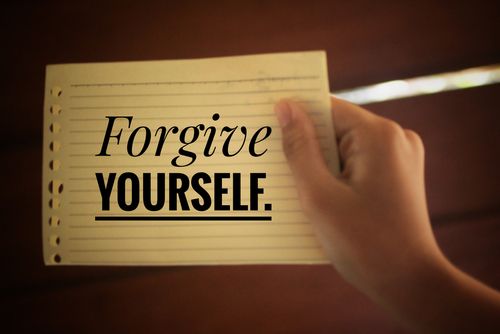 Forgiveness is one of the central tenets of many religions. While different faiths vary on exactly how to be forgiven or what is required for this gift to be extended, many share it as a common value. Almost any worldview with a concept of right and wrong grapples with what happens to those who do immoral things when they want to return to good graces.
Forgiveness is one of the central tenets of many religions. While different faiths vary on exactly how to be forgiven or what is required for this gift to be extended, many share it as a common value. Almost any worldview with a concept of right and wrong grapples with what happens to those who do immoral things when they want to return to good graces.
Instructions on making amends and atoning for sins may abound, but even if you receive the forgiveness of the person you hurt, there's still more to it. What do you do about your own guilt? The task of being forgiven often seems relatively easy when placed beside the struggle of excusing yourself. If you have trouble extending yourself the grace of forgiveness so that you can truly move forward in peace, there are a few practices that may make it easier.
Take Responsibility for Actions
Any time you hurt someone else, the right thing to do is to admit it. Acknowledge that you are wrong without excuses or rationalization. Getting it out in the open can start the healing process for everyone involved.
Admitting what you've done is a good first step toward making amends and seeing forgiveness, not just from the person you wronged but from yourself. It's much easier to forgive yourself if you not only apologize but try to rectify the problem caused by your behavior. Conciliatory action makes it easier to accept the forgiveness offered and, in turn, extend it to yourself.
Reject Perfectionism
It's natural to feel guilty when you do something hurtful. The trick is to not let that guilt devolve into shame, especially if you tend toward perfectionism. You know you're caught in this particular trap when you find yourself replaying what you did over and over in your mind, even after the other person has already forgiven you.
Perfectionistic thinking tells you that wrongdoing makes you a bad person. This is simply not the case. A one-time error doesn't change your character, especially if you do everything you can to make amends. Don't let a mistake become your identity.
Journal Your Thoughts
One of the reasons self-forgiveness is so difficult is that the harmful ideas you harbor may not always be in the forefront of your mind. When you take the time to explore your thoughts in writing, however, they become more apparent. As you write down what you are feeling, you may start to identify the negative messages your inner critic sends:
- "You are a bad friend."
- "That person will never look at you the same way again."
- "Once a liar, always a liar."
- "You don't deserve to be loved."
Sometimes, the inner critic can be really harsh! You may even be surprised at how brutal some of the ideas that surface may sound. This initial shock, however, can help you recognize these thoughts as the lies they are. When this happens, take a few minutes to write down some positive things that are true instead. Soon, you are likely to find the shame you feel fading away.
Learn From Your Mistake
Finally, turn your mistake into a learning experience. For example, if you made a snap judgment about someone and they found it off-putting, use that awkward encounter to ignite your curiosity. This is particularly useful if it helps you learn more about a particular culture or the struggles of people who lack the privileges you enjoy. You can likely search for more information on the internet or find books that help you reach a better understanding and improve future communication.
Forgiving someone who has wronged you may be hard, but sometimes extending that grace to yourself is even more difficult. Both are useful skills for people of faith to learn, though.



